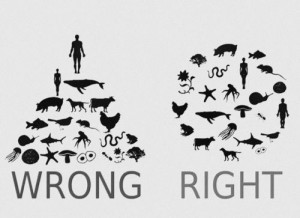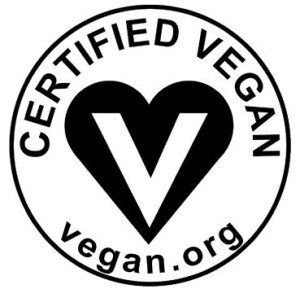I decided to become a vegan this past December (2015). Over my winter break of senior year, I spent probably too much time contributed to watching documentaries about the food industry and animal exploitation. Documentaries like, Food Inc., Forks Over Knives, If Slaughter Houses Had Glass Walls, and Earthlings helped me better understand and realize the disturbing and eye-opening enigmas throughout the everyday, normal American diet. I will not go off on a tangent to discuss about the gory and torturous side of the food industry, rather I will focus on the environmental harms that meat and dairy have on our earth and why a vegan lifestyle improves one’s ‘ecological footprint’.
Aside from the long list of personal health benefits, like increased energy, healthier-looking skin, weight loss, reduced risks of fatal diseases (heart disease, diabetes, cancer), there are many other scientifically proven advantages of veganism that the average western diet does not provide.
Now, when I say “average western diet” this includes all forms of meat, dairy and eggs. That is what one would call an animal-based diet. In contrast, the vegan lifestyle eliminates all forms of animal-by products from the every day diet. As I like to describe it, essentially, veganism excludes any form of food that once had a face of it’s own, a mom or a dad (seemingly silly, i know. But it is an easier explanation for people to understand). There are different forms of veganism, some more intense than others. The most efficient and environmentally friendly form of veganism has proven to be a purely plant-based diet.
As for the environmental benefits, according to Vegan Outreach, the livestock sector (chicken, pigs, cows) is responsible for about 18% of the dangerous greenhouse gas emissions in our air. CO2 and greenhouse gas emissions are some of the main contributions to our increasing global warming issue. Additionally, about 64% of anthropogenic ammonia emissions, which heavily contribute to acid rain, are traced back to livestock as well.
Clearly, with an increase in need for livestock comes an increased need for land (to keep all of the animals). Land degradation has become a more significant problem seeing as pastures and feed-crop land are in high demand. As a result of this, deforestation has increased.
PETA (People for the Ethical Treatment of Animals), one of the largest animal rights organizations in the world, has a surplus of information on this topic but I found great evidence regarding the large water pollution problem that food industry causes. “Each day, factory farms produce billions of pounds of manure, which ends up in lakes, rivers, and drinking water.” (PETA) Animal waste and fertilizing chemicals subsequently end up in bodies of water that WE retrieve drinking water from. “According to the EPA, agricultural runoff is the number one source of pollution in our waterways.”
Certainly, my decision to transition over to a primarily plant-based, cleaner diet has a considerable amount to do with my emotional attachment to animals, but I was also looking for a way to make a healthier lifestyle for myself. My ecological or carbon footprint has now decreased significantly as a result of living a more sustainable lifestyle and cleaner eating routine. The ecological footprint “measures how fast we consume resources and generate waste, compared to how fast nature can absorb our waste and generate new resources.” (Livestrong) The cycle of food consumption and production is a critical footprint component, measured as the number of hectares of biologically productive land and sea needed to support an individual’s or a community’s food consumption. Though one person’s diet change may not make a difference in the significant amount of greenhouse gas emissions in our world or totally cleanse the depths of our water, it is good to know that you as a person are making your own kind of change in a smaller way.
Many people have their different reasons for veganism, but whatever that reason may be, this lifestyle among many different kinds of people has one large outcome in common, a cleaner and greener earth.
Sources:
https://www.vegansociety.com/try-vegan/why-go-vegan
http://www.veganoutreach.org/whyvegan/environment.html
http://www.livestrong.com/article/513641-ecological-footprint-of-a-vegan-diet-vs-carnivorous-diet/
http://www.peta.org/issues/animals-used-for-food/animals-used-food-factsheets/vegetarianism-environment/
http://vegan.org/learn/for-the-environment/



I have always been interested in Vegans, so I was drawn to this blog by the title. I am exactly like you. I watched the “Food Inc.” video my junior year of high school, and made the decision to stop eating meat. I did not go vegan, but vegetarian. I was shocked and saddened by this world, that we knew nothing about. I have since starting eating meat again, but I still am very aware of the horrible reality of it. I keep considering going back. Not only does it make me feel better, but it helps the environment as well, I just learned. I never thought about the fact that vegans and vegetarians could be doing what they’re doing because they want to help the environment as well. You opened my eyes to the consequences that comes along with the production of meat and other foods from animals, such as, deforestation and pollution. You could definitely expand on this, if you wanted to, which would be awesome! Thanks for sharing this blog, I enjoyed it a lot!